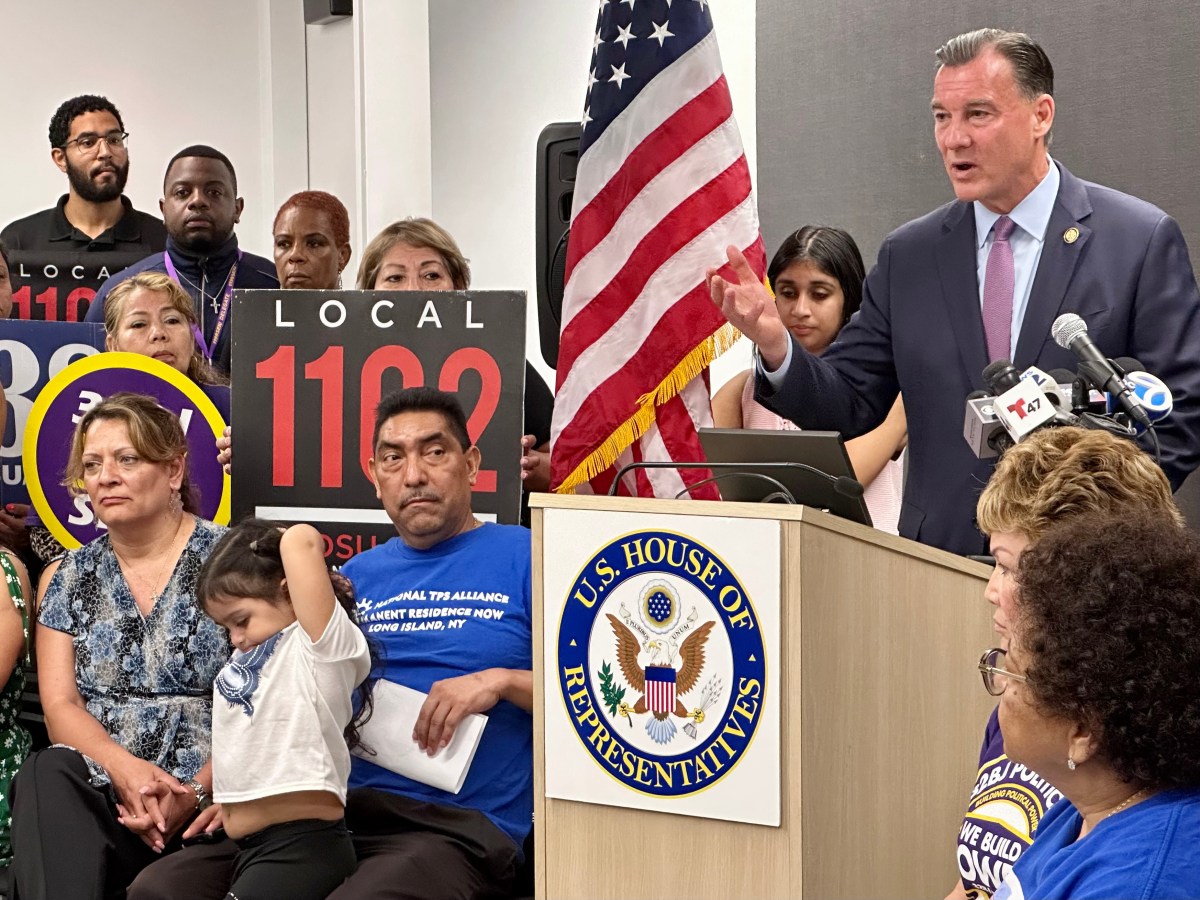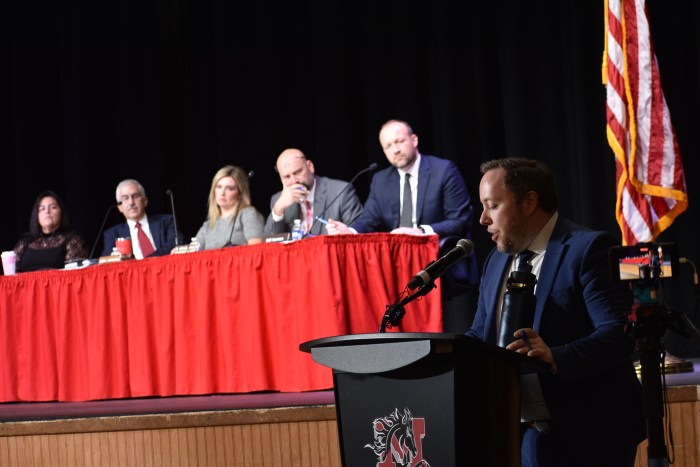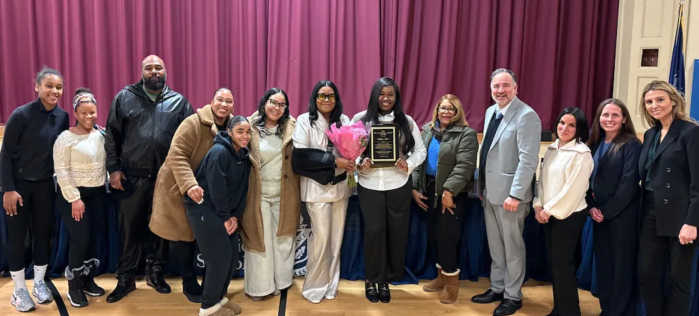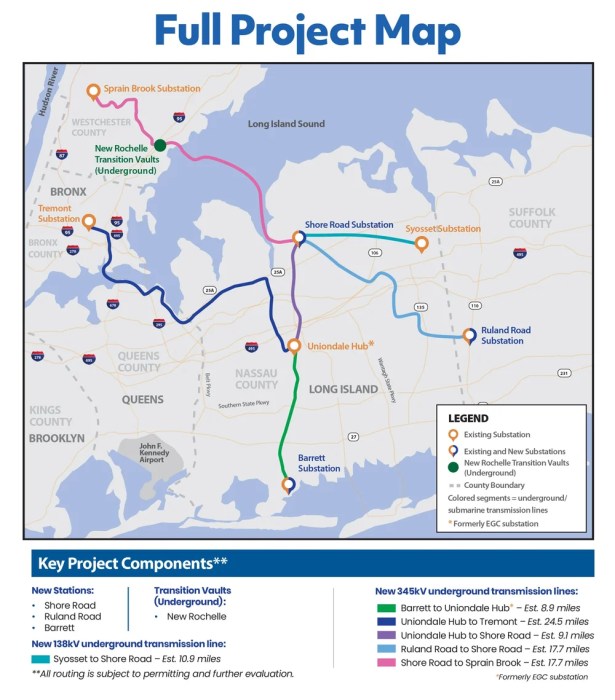Nearly 90,000 immigrants in the state have Temporary Protected Status, which allows them to reside in the United States due to unsafe conditions in their home country.
But now, the federal government is seeking to end this service.
For Hondurans with this status, this is scheduled to be revoked on Sept. 8.
“It’s a terrifying thing for us,” Honduran TPS recipient William said, who used an alias out of fear of retribution. “We don’t know what’s going to happen to our families, to the businesses that we own, to the communities that we serve. Not only is it going to affect my family but it’s going to affect the families of my employees and the people of the communities that we serve.”
With a deadline on the horizon, Long Islanders and local officials are rallying to prevent the end of Temporary Protected Status, or TPS, in the United States.
“We are here because Immigrants are essential workers who have vital roles in our communities and our economic structure,” said Onika Shepherd, political director for 1199 SEIU.
U.S. Rep. Tom Suozzi held a press conference alongside the National Day Laborer Organizing Network, New York Immigration Council, SEIU and 32BJ – two local labor unions – and Honduran TPS recipients.
The United States granted Temporary Protected Status to Hondurans in 1999 after the devastating Hurricane Mitch that same year. This means recipients have been living in the United States legally for more than 25 years, many of which established families and businesses, and paid taxes during this time.
Hondurans are the fifth-largest recipients of TPS.
Recipients from Honduras, El Salvador and Haiti contribute $4.5 billion in pre-tax wages or salary annually to the United States economy, according to the National Immigration Forum. They also contribute $6.9 billion to Social Security and Medicare over a ten-year span.
Haitians also have a threatened Temporary Protected Status, which is scheduled to expire on Sept. 2.
“The idea of separating these families and ripping them out of our economy and creating this instability and fear in our community is just plain wrong,” Suozzi said. “And I believe that most American people agree with that.”
Two TPS recipients, William and Alfredo, shared their current fears with threats of revocation. Both used aliases and spoke over the phone, not showing their faces, out of fear of retribution for themselves and their families.
William, who owns two businesses on Long Island’s North Shore, has resided in the United States for more than 25 years under TPS and has two kids who are U.S. citizens.
“I’ve been here for over 20 years, I pay taxes that whole time,” William said. “I try to do the right thing. We go to church. I have two kids. I always tell them to do the right thing, you know, help people that need help, look out for neighbors, look out for friends.”
Alfredo, a local restaurant owner with a son born in the United States, said he came to this country to “do the right thing.” But the news instilled fear into him, weighing the possibility of moving his family to a country he described as dangerous due to drug cartels and gangs.
“I was scared, to be honest, of what is going to happen if we lose our status,” Alfredo said. “…Our lives really changed a lot since we heard the news that TPS is going to be suspended. To be honest, I don’t know what to do.”
Nadia Marin Molina from the National Day Laborer Organizing Network called the pending revocation “arbitrary” and “inhumane.” She said the program was a promise made by the United States to help protect individuals.
“But if TPS was a promise, then the Trump administration has broken that promise,” Molina said.
She cited a change in the policy as not in response to safer conditions in their home country, but rather a method to remove immigrants.
“This administration that we’re fighting is not making case-by-case arguments,” Molina said. “They’re cancelling TPS across the board and they’re hunting and abducting immigrants.”
While Suozzi praised President Donald Trump for his policies securing the border and deporting criminals, he condemned his actions putting TPS recipients at risk of deportation.
“I believe it’s gone too far,” Suozzi said. “ And I think we need to work together to find some sort of compromise to move forward because what’s happening now is bad for business, it’s bad for law enforcement and it is actually very inhuman and unfair to people and I believe it’s un-American.”
Suozzi said he has sought a conference with Trump to find a solution to the country’s immigration problem without deporting law-abiding immigrants who have resided here legally for more than 25 years.
“They’re central to the fabric of our communities. They live the same as you and your families do,” Suozzi said. “And now they’re having that ripped away from them and it’s just not right.”
The National TPS Alliance has filed a federal lawsuit to challenge the decision to terminate the Temporary Protected Status program.
“We think that by defending the rights of TPS holders and all immigrants, we’re defending all of our rights,” Molina said.





























